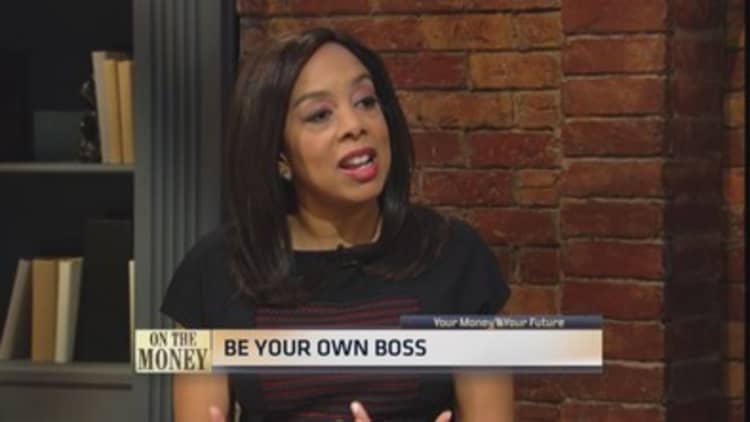Do you want to succeed as a gig worker?
Be organized. Very, very organized.
You might think making and sticking to a budget is all there is to it, but having a financial plan and a business plan can take you to the next level, according to a survey from BMO Wealth Management.
BMO surveyed 1,021 people of all demographics to get a sense of their reasons for working in the gig economy. Their challenges vary, too.
For instance, Gen X as a demographic values balancing career and family more than other groups. Boomers are more likely to work in the gig economy because it's their only way to earn income, while millennials pick up side work this way for the extra money.
Millennial money
"For millennials in particular, some of the driving factors are voluntarily making the choice, wanting a new challenge and wanting to make more money on the side," said Kris Yamano, vice president and regional leader of wealth planning, Sunbelt and western states at BMO Private Bank.
Certified financial planner Sophia Bera, founder of millennial-focused financial advisory firm Gen Y Planning, said she believes "entrepreneurship is the new job security, and more millennials are entrepreneurs."
The flexibility of working from home is one draw, and creating their own set of arrangements to do the work they love is another.

"Maybe they have a job at a nonprofit, but they also drive Lyft at night," Bera said. "Maybe they write for a few different companies, so they can take classes at night or be in a band."
The one thing all generations have in common in a gig economy? A lack of benefits, including health care and paid days off. Insufficient income can also be an issue.
Overcoming these challenges takes effort, but there are some tips gig workers can follow.
Beyond the budget
A budget and a financial plan, although you use them in conjunction, are not identical. One shows you where you are, the other helps you get where you'd like to be.
A budget is a snapshot of your current situation — a record of your short-term income and expenses — but the financial plan is a roadmap for longer-term goals.
"Although it incorporates a person's budget, a financial plan is often more robust," BMO's Yamano said. This plan folds in other facets of your financial life: taxes, insurance, estate planning, retirement and education funding, among others.
Serious gig workers will also create a business plan. This gives the specifics of your plans to obtain income, and outlines your expertise, services, products and clientele.
The business plan also has your marketing plan, fees, location, hours and expenses. "A solid financial plan will incorporate business plans into an individual's overall personal long-term financial strategy," Yamano said.
No matter their age or situation, all freelancers can get a grip on their finances.
Make sure to have an emergency fund, set aside money for taxes and retirement, and keep detailed records of your income and expenses.
"Automate your recordkeeping as much as possible," Yamano said. "A safety net will enable you to have cash on hand when life throws financial hiccups your way, whether car issues or a slow month of freelance work."
More in Personal Finance:
U.S. families increasingly feel the pinch from this one expense
Your credit score could mean as much as $45,000 in savings … or expenses

